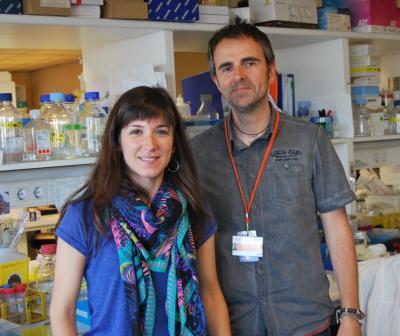Researchers at the Catalan Institute of Oncology-Bellvitge Biomedical Research Institute (ICO-IDIBELL), led by David Garcia-Molleví have identified 5 genes differentially expressed in normal accompanying cells in colorectal tumors. Analysis of these genes could be used to classify colorectal tumors, predict the evolution of the patient and thus take appropriate clinical decisions to prevent relapses.
Biomarkers
Colorectal cancer is the most common in our population considering both sexes. About 30,000 new cases are diagnosed each year. Of these, approximately 70% are on intermediate stages of the disease, and there are no solid criteria indicating added treatment to surgery on at least half of cases. It is therefore very important to correctly identify those patients who will benefit from chemotherapy and avoid the additional risks which arise from overtreatment.
In order to accurately identify the characteristics of each tumor, good biomarkers are needed to inform us of the outcome of each patient. Thus, both malignant cells and normal accompanying cells which are a particular microenvironment, can be a source of these biomarkers.

These are researchers Mireia Berdiel and David Garcia-Molleví.
(Photo Credit: IDIBELL)
Researcher David Garcia-Molleví studies the tumor microenvironment in search of these biomarkers, he is part of the research group in chemoresistance and predictors of tumor response and stromal environment ICO-IDIBELL and has coordinated this study that has been published in the journal Oncotarget.
A tool applicable in clinical
In this study, researchers have developed a tool based on the expression of 5 genes characteristic of the tumor microenvironment that allows classifying very accurately the prognosis of patients suffering from colorectal cancer at an intermediate stage of the disease. Garcia-Molleví explained that this new work represents a step toward a possible clinical application of these results: "With the analysis of only five genes by routine techniques, we provide very precise information about the likelihood of relapse and the appropriateness of administering chemotherapy patients with stage II disease. "